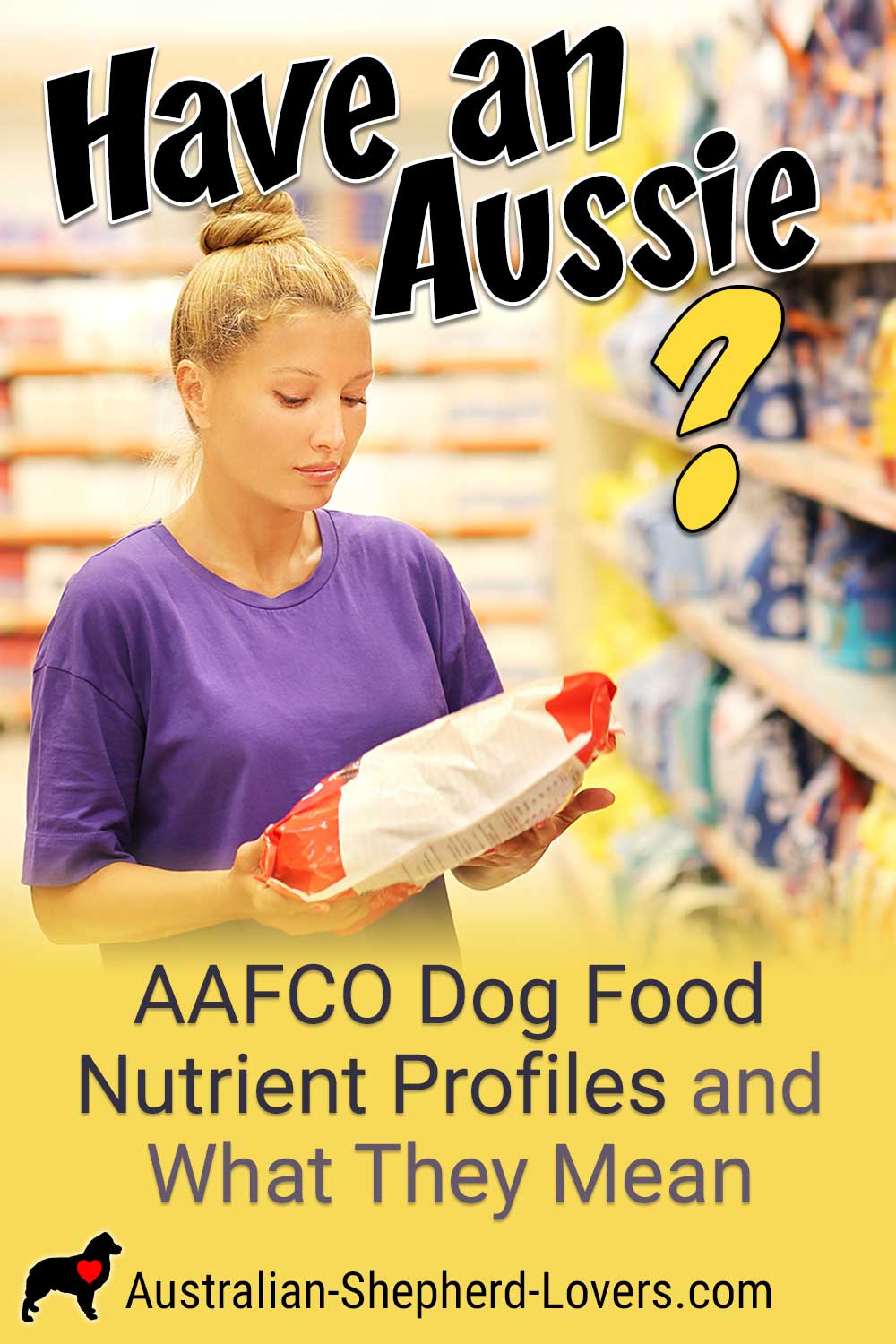
AAFCO Dog Food Nutrient Profiles and What They Mean for Australian Shepherd Owners
W hat are the AAFCO dog food nutrient profiles and why should they matter to you as a responsible dog owner? That's a good question and one that many dog owners may not even think to ask. Whether you have a working Australian Shepherd on your farm or a family pet curled up beside you, you need to make sure that your four-legged best friend is getting the best, most nutritious diet that he possibly can and that's where the AAFCO comes in.
Dilated Cardiomyopathy (DCM) Notice
DCM is a heart condition that has been reportedly linked to certain low carbohydrate dog foods. However, the FDA has still not confirmed a specific cause and its latest study is also inconclusive. As such, at the time of this writing (July 16, 2020) there have still not been any recalls. For further information see: FDA, Dog Food Advisor article, and an article by Daniel Schulof, the founder and CEO of KetoNatural Pet Foods, Inc. addressing potential Bad Science and Financial Conflicts of Interest Plaguing the FDA's Investigation Into "Grain-Free" Pet Foods and Dilated Cardiomyopathy.
The Association of American Feed Control Officials (AAFCO) has been in existence for over one hundred years, having been formed in 1906. They are a voluntary membership association of local, state and federal agencies whose primary purpose is to provide scientific and technical nutritional information that may be used to regulate the sale and distribution of animal feeds and animal drug remedies. Simply put, they exist to ensure that feed laws and regulations are uniform for all states so that no matter where you are you can be sure to get the best quality of food for your dog.
They don't create laws and regulations but they gather experts in nutrition and animal behavior to provide technical input to the legislative agencies that do create the laws. The AAFCO dog food ingredient recommendations are defined and created in collaboration with US Food and Drug Administration Center of Veterinary Medicine (FDA CVM) and with individual state governments.

lado2016 / stock.adobe.com
AAFCO dog food nutrient profiles help dog owners to guage the quality of brands and make informed choices.
Every October, the AAFCO Official Publication is released. This document contains a wide range of important information including:
- Approved US animal feed and pet food ingredient definitions.
- Current pet food and animal feed labeling requirements.
- Model guidance documents, bills and regulations that may be adopted by states as state laws.
Among the important pieces of information included in the Official Publication are the AAFCO dog food nutrient profiles, which establish minimum or maximum levels of nutrients that pet foods must contain in order to be considered nutritionally balanced. The AAFCO bases these profiles on the nutritional properties of specific commonly used, non-purified, complex ingredients on a dry matter, or moisture free, basis.
If a dog food meets the nutritional profile requirements set out by the AAFCO, it can then include a claim on its label that it is designed for one of these categories. There are three specific claims that the AAFCO allows depending on whether the food in question has adhered to their guidelines, is comparable to products that have followed their guidelines or is similar with only minor, insignificant differences.
The Five AAFCO Dog Food Nutrient Profiles
There are five nutrient profiles, each designed to cover a specific life stage or category of food: gestation/lactation, growth, maintenance, all life stages, and intermittent or supplemental. "Gestation/Lactation" covers foods with specific nutritional requirements for pregnant and nursing dogs, "Growth" covers puppies and young dogs, and "Maintenance" would be for adult dogs.
"All life stages", as the name suggests, would indicate a dog food that has the proper nutritional benefits for dogs at every stage of their life. Products that are labeled for "Growth" or "All life stages" must also contain a specific statement indicating whether they are suitable for large size dogs, as dogs that are 70 lbs. or more as an adult have specific dietary needs to ensure normal growth and development.
The fifth AAFCO dog food nutrient profile, "Intermittent or supplemental", is designed to cover specially formulated foods that may be used temporarily to help dogs suffering from particular health concerns. These types of foods would not be used on a permanent basis as they may not contain all of the nutrients that an otherwise healthy dog would need, but they may be recommended by your vet on a limited basis.
Feed Trials for AAFCO Dog Food Nutrient Profiles Standards and Compliance
Foods are regularly put through AAFCO feed trials in order to determine whether they meet the standards for one of the dog food nutrient profiles. These trials help AAFCO experts set nutritional requirements and gauge how successfully an individual food meets these requirements. Only after passing one of these trials is a food able to contain one of the approved AAFCO claims on its label.
Those claims, which indicate that a food has passed or met AAFCO standards, are a vital way for pet owners to ensure that they are providing their dogs with the best, most nutritionally sound food. When choosing a food for your dog, you should always check the label and make sure that it contains an AAFCO statement so that you know it complies with all state regulations for dog food nutrition and safety.
There is so much that goes into being a responsible dog owner and providing a healthy, nutritious diet for your dog is certainly at the top of that list. You expect no less than the best from your own diet so why would you want any less for your dog? That's why organizations like the AAFCO and the FDA CVM are so important, but they aren't the only measure you can rely on. If you have any questions about the nutritional content of your dog's food, you should consult your veterinarian for advice.
Having the best quality diet at every stage of life is important for all dogs, but especially for active, hard-working Australian Shepherds. Don't take your Aussie's diet for granted—make sure that he's got the proper fuel he needs so that he can stay fit, healthy, and happy from puppy to senior. He'll love you for it and you'll be able to breathe easier knowing you're doing right by him.
Have Dog Training Questions?
Check out these introductory dog training videos...
I want my dog to stop being aggressive.
I want some help training my new puppy.
I want my dog to stop barking at everything.
Get Australian Shepherd Info, Website Updates, Special Offers, and Cartoons...
FREE GIFT
You'll also receive a free copy of the ebook
My Everyday Dog Training Tools
by professional dog trainer Daniel Abdelnoor, "Doggy Dan"













